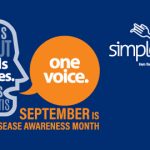Rheumatology professionals can use the resources created for RDAM to educate patients about self-management and, ideally, improve outcomes. The resources also are a way to partner with patients to make complex rheumatology information accessible and actionable.
“Each patient encounter is an opportunity for rheumatologists to remind patients to incorporate self-management techniques into their lives,” Dr. Shah says. “During my patient visits, I try to review topics, such as medication adherence, physical activity and quality of life. I remind my patients that we are a team and that collaboration will lead to improved outcomes for them.”
Examples of self-management tips include getting regular physical activity and managing stress. See more in the sidebar below.
RDAM Through the Years
The ACR’s Simple Tasks Public Awareness Initiative launched RDAM in September 2016, with a focus on increasing the understanding and awareness of rheumatic symptoms and challenges. Past themes have included reproductive health, biosimilars and issues that affect patients living with rheumatic conditions.
Celebrity public service announcements for RDAM have been recorded by Terry Bradshaw, Jennie Garth and Venus Williams. Components of some previous RDAMs have included a national survey, a report card and a patient-focused webinar.
Vanessa Caceres is a medical writer in Bradenton, Fla.
Self-Management Tips for Patients with Rheumatic Conditions
Manage your stress: Your rheumatic condition can have both physical and mental effects on your health. To help practice mindfulness, work to create your own relaxation practices, such as meditation, self-reflection, journaling and other exercises, including deep breathing, yoga or tai chi.
Take your medication: Work with your clinician to understand your medications, what aspects of your disease they treat and why it’s important to continue those medications.
Make lifestyle changes, such as exercising regularly and eating well: Dedicate 30–45 minutes every day to weight training and recreational or leisure activities, such as jogging, walking, golfing and swimming. Consuming a healthy diet of whole foods and grains is important for general well-being. This tip is particularly true if you’re on medications, such as steroids, that can cause weight gain.
Communicate and collaborate with your healthcare team:Maintain open communication with your rheumatology healthcare team, including your rheumatologist, physical therapist and other specialists.
Maintain a support group: Ask your family or friends for help when needed. If some tasks are particularly hard during disease flares or you need help managing your appointments, don’t hesitate to ask those close to you for help.



